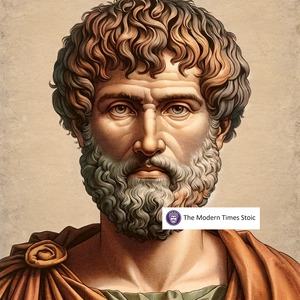In Letter 56, “On Quiet and Study,” reveals Seneca’s contemplations on the necessity of silence for focused study and reflection amidst the distractions of daily life. He begins with a vivid description of the cacophony surrounding his lodgings above a bathhouse, illustrating the challenge of finding tranquility in a bustling environment. Through this lens, Seneca explores deeper philosophical themes about internal versus external tranquility, the nature of distractions, and the pursuit of peace through stoic practice.
Seneca humorously enumerates the various sources of noise that besiege him, emphasizing the difficulty of maintaining concentration amidst such disturbances: “Imagine what a variety of noises reverberates about my ears! I have lodgings right over a bathing establishment. So picture to yourself the assortment of sounds, which are strong enough to make me hate my very powers of hearing!” Despite the external chaos, Seneca underscores the Stoic principle that true peace comes from within, not from the absence of external noise: “‘Twas night, and all the world was lulled to rest. This is not true; for no real rest can be found when reason has not done the lulling. Night brings our troubles to the light, rather than banishes them; it merely changes the form of our worries.”
Seneca further distinguishes between mere physical silence and the deeper tranquility achieved through mastering one’s inner turmoil: “Real tranquillity is the state reached by an unperverted mind when it is relaxed.” Through personal anecdotes and reflections, Seneca conveys the message that the pursuit of quiet for study and contemplation is less about escaping noise and more about fostering an inner silence. He concludes by affirming the value of testing oneself against distractions to strengthen one’s resolve, while also acknowledging the practicality of seeking quieter surroundings when necessary: “I merely wished to test myself and to give myself practice.”
In Letter 56, Seneca weaves a narrative that not only depicts his struggle with finding external quietude but also offers profound insights into the Stoic endeavor of achieving inner peace amidst the incessant noise of life. Through his reflections, Seneca teaches us that tranquility is not merely the absence of sound but the presence of a harmonious and disciplined mind.
"I merely wished to test myself and to give myself practice."
Seneca Tweet This Quote







